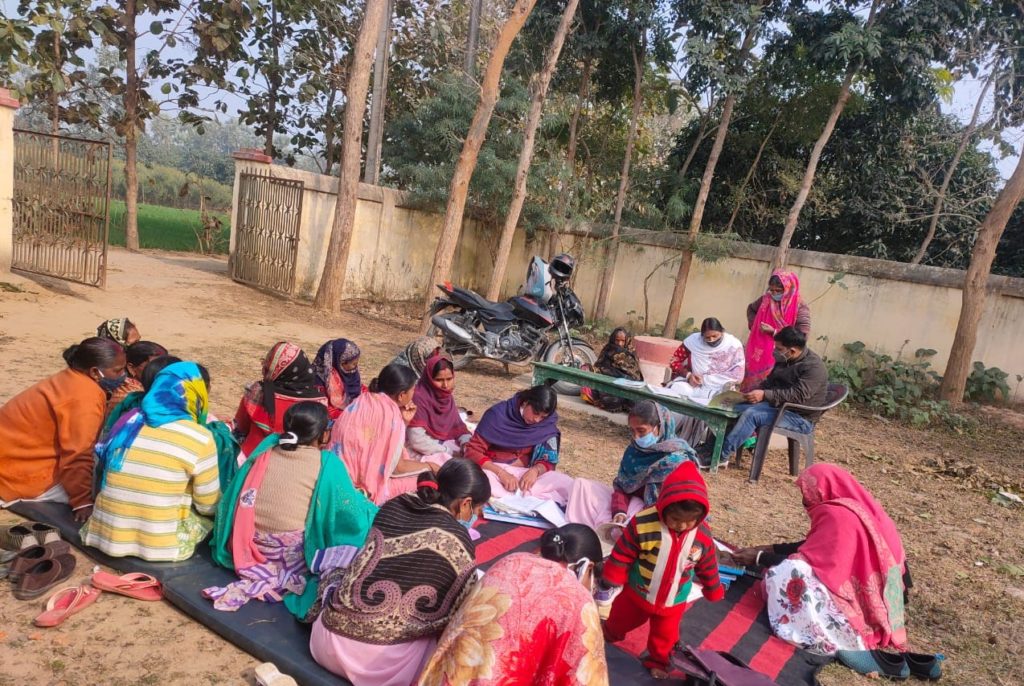Type of Change: Changes in practices and programs’ implementation
Boundary Level: Community
Summary/Theme: Arsenic mitigation practices shared with social health activists and nurses in India
Arsenic contamination is a real challenge in many areas in India. SCaN conducted a series of training courses on arsenic mitigation technologies to accelerate and empower key stakeholders with the knowledge required to mitigate water quality issues. Mr. Mithlesh Kumar, a community mobiliser from a local hospital in Kahalgaon, Bhagalpur participated in the trainings and had no previous knowledge about dealing with arsenic contamination. “After the training, I shared the information with my family, colleagues, social health activists and nurses who have further interacted with and raised community members’ awareness on arsenic water contamination.”
During the training, Mithlesh learnt about mitigation technologies such as bio-sand filters, as well as eye-opening information regarding the use of groundwater and surface water use. He mentioned that people in the community did not know that open wells, Ganges water and solar water plants could be alternate safe drinking water sources. In the last decade, people in these communities stopped using them and have become completely dependent on hand pumped water. However, while arsenic is not found in surface water, its concentration is high in groundwater, making hand pumped water unsafe in areas where there are high concentrations of arsenic.
Mithlesh also mentioned that in the past, health workers used to advise the community to boil water before drinking it. However, after the training he became aware that the practice of boiling water in fact increases the amount of arsenic. “Now all of us are making neighbors aware of arsenic so that we can protect people from drinking contaminated water”.
